2020 is shaping up to be a pivotal year for electric vehicles. We already have new models lined up from major players including Volkswagen and Ford, as well as newcomers like Rivian and Bollinger (albeit at premium prices).
Blend in a full mid-cycle update for the Chevy Bolt EV, plus the potential for a new all-electric crossover from Nissan, and you have a recipe for the next phase of EV adoption.
Yet even with so much increased competition, it appears that it's still Elon Musk and team who'll be calling the shots as the next decade begins. Not least because the Tesla Model Y is ahead of schedule and packed with technology that should ensure it still leads the field.
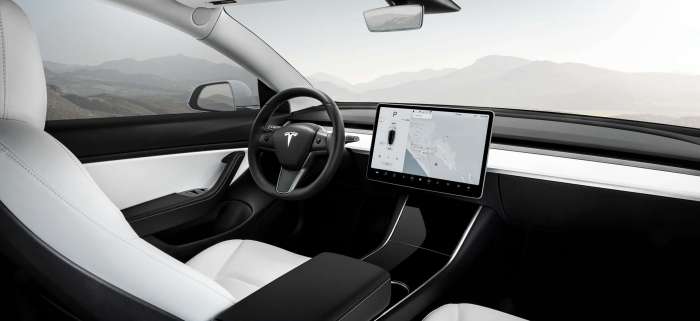
"Elon Time" Sets the Clocks Back for a Change
Although the standard refrain in the EV community of "Elon Time" is typically used to reference late arrivals and deadlines being pushed back, its meaning could be changing. Take this statement from Tesla's Q3 2019 earnings call last week as the first example:
"Regarding Model Y, we're also ahead of schedule on Model Y preparations in Fremont, and we've moved the launch timeline from full 2020 to summer 2020. There may be some room for improvement there, but we're confident about summer 2020."
If that means more than just a handful of production vehicles released to employees and early order holders, it gives Tesla several months headstart on competing models. In fact, given what the company has learned from "production hell" with the Model 3 and increased efficiency in the manufacturing process, it's not unreasonable to believe we could see most versions of the Tesla Model Y available before the end of 2020. In that scenario, Tesla would have a very competitively priced crossover EV with the latest technology, in one of the most popular vehicle categories in North America.
After a relatively muted launch for the Model Y earlier this year, Musk is increasingly bullish on the prospects for Tesla's latest vehicle. On the sales prospects for the vehicle, he says it could put all of the company's previous offerings in the shade:
"It's going to be an amazing product and be very well received. I think it's quite likely to outsell Model S, Model X and Model 3 combined."
After such a significant shake-up by the Tesla Model 3 in the declining sedan segment, those predictions for a Tesla entering the massively popular crossover category should be a major concern for established brands.
Can Volkswagen and Ford Compete?
We single out these two manufacturers because, at this moment, they seem to have the most potential to deliver a competitive all-electric crossover in the next 12 months.
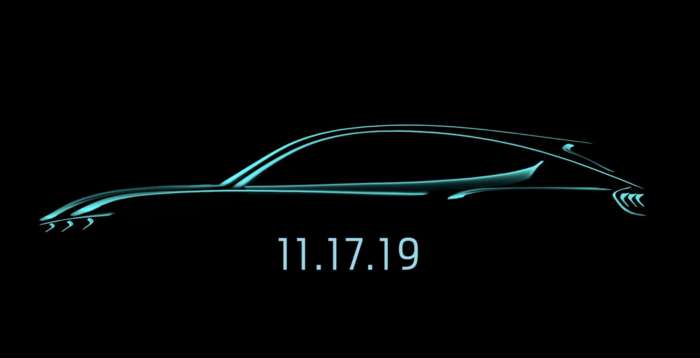
Just a couple of weeks ago, that meant they might have a jump of several months on Tesla. Now, it appears that Tesla will beat them to market with the Model Y.
The importance of this should not be overlooked. Let's go back a few years and take the race to deliver an affordable long-range EV as an example.
At the time, in mid-2016, only the Tesla Model 3, Chevy Bolt EV, and second-gen Nissan Leaf were on the horizon as all-electric models that would deliver more than 200 miles per charge for less than $40,000 before incentives.
The Bolt EV arrived first at the end of that year, with nationwide availability the following summer of 2017. The Model 3 did also manage a summer 2017 release but wasn't produced in significant numbers until 2018. Meanwhile, Nissan took their sweet time with the update of their popular EV and failed to deliver the Nissan Leaf e+ until earlier this year, having lost its EV lead and facing new competition from Hyundai and Kia.
Clearly, the Model 3 eventually won the war, but Tesla did lose a chunk of us to the Chevy Bolt EV due to its earlier arrival. With the Model Y, Tesla not only has a chance to win over Bolt EV drivers. It can also get a jump on potentially compelling crossover EVs from Ford and Volkswagen.
Watch 4 Reasons Why Bolt EV Owners May Convert To Tesla Model Y and Click To Subscribe to Torque News Youtube Channel for Daily EV and Automotive News.
In Ford's case, despite the company's overblown statements on electrification, the forthcoming "Mustang-inspired SUV" has our attention. If the November launch claims it can truly deliver a range in the region of 300 miles and fast charging well above 100kW, it immediately becomes a contender. Even if the price is inflated because Ford has very little experience with electric drivetrains at this early stage, the company still has the full federal tax credit of $7,500 to offer customers for as long as it lasts.
Similarly, Volkswagen's ID. 4 has been mooted for a long time and is likely to arrive in North America in the latter half of 2020. With its European hatchback sibling the ID. 3 already taking pre-orders at affordable prices, it isn't a stretch to say the ID. 4 will also go into direct competition with Ford and Tesla's new electric crossovers.
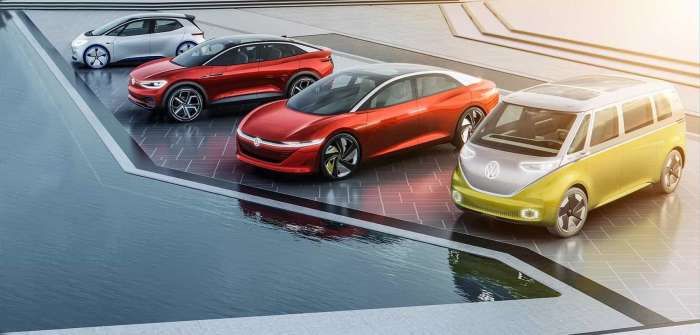
We postulated earlier this year that Volkswagen was the legacy automaker best-positioned to compete with Tesla, setting up an intriguing battle between two companies that have recently forged a mutual-appreciation society.
However, with the release of the Tesla Model Y ahead of schedule and the company primed to produce the car in greater numbers much more quickly than the Model 3, the ball is firmly in Volkswagen's court to return. Short of a major breakthrough in range or efficiency, it looks highly unlikely that the ID. 4 will come out on top of Tesla's latest model, which also offers the Supercharger network, ongoing software improvements, and the latest technology Fremont has to offer.
Do you think any of the big brand automakers can go toe-to-toe with Tesla in the crossover segment next year? Let us know who and why in the comments!
Steve Birkett is an electric vehicle advocate at Plug & Play EV. You can follow him on Twitter at @Plugandplayev, Instagram and Youtube at Plugandplayev Channel to send him EV news tips.
Set Torque News as Preferred Source on Google


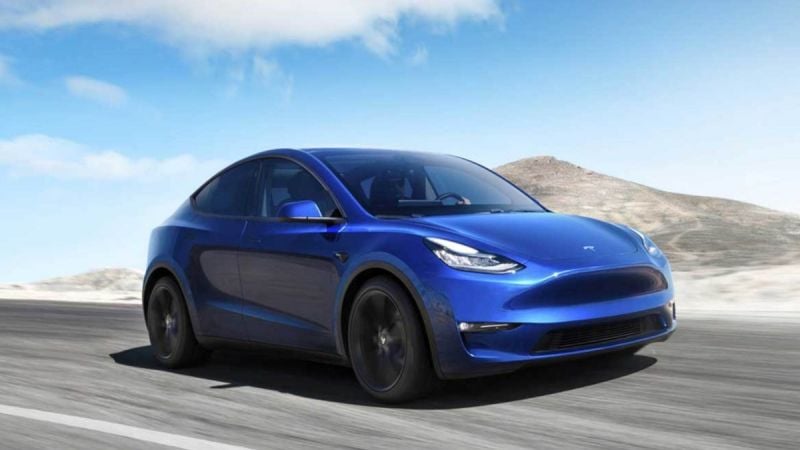




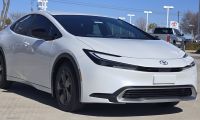
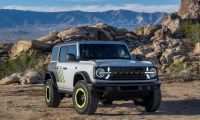
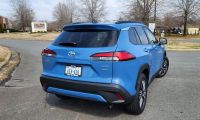
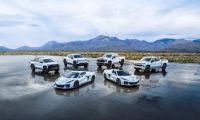
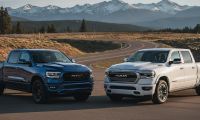
Comments
The Tesla Model Y is
Permalink
The Tesla Model Y is definitely going to shake up the EV market over the next year.
I disagree with this statement.." Even if the price is inflated because Ford has very little experience with electric drivetrains at this early stage". Ford has tons of experience with EVs. People sometimes forget that plug-in hybrids are primarily battery powered electric cars, and Ford had the Fusion Energi, and CMax Energi as well as the compliance Focus EV. So they would have no problem building a competent and competitive BEV, but this new Mach-E crossover is being billed as a performance crossover, so it probably will have twin motors, and Ford will have to contend with dealing with heat and transmission issues that come from a high performance EV drivetrain. VW's ID.4 looks like it will be a logical extension of their earlier FWD EVs, and they have specifically designed their new MEB platform, which will accommodate FWD or AWD, and it will underpin several different models from the ID.4 to the Buzz and others. As you mentioned, VW, Hyundai, and Ford EVs will get the full subsidies (for those buyers who benefit) But the Bolt has been discounted to remain competitive, and after initial introduction there will be a more affordable Model Y released. The best part about the Model Y is that 75% of the parts are shared with the Model 3, so there probably won't be the bugs in manufacturing, and 1st year production issues that Tesla went through with the Model 3, and most likely Ford and VW will face with the ID.4 and Mach-E. And because the Model 3 Performance was sorted out, the performance Model Y shouldn't have any major issues now. And speaking of the Performance Model Y, it is rated at 0-60 in 3.5 sec, which is quicker than many gas powered performance cars today. In fact that is just about as quick as Ford's monstrous 760HP GT500. If Ford set it's EV performance goals on the Mustang GT, then Mach-E will be slower than the Model Y, even if it probably will still be plenty quick. So far, all of the newer, long range, affordable BEVs do a great job with practicality, efficiency, and quicker-than-gas performance. But their price, design, and usability will determine which models sell the best when they are released. With an early release, the Model Y will be the one to beat.
I think the issue for Ford
Permalink
In reply to The Tesla Model Y is by DeanMcManis (not verified)
I think the issue for Ford will be the same that other established manufacturers have faced, unless they have some impressive engineering up their sleeves, which is squeezing adequate efficiency out of what is presumably quite a large battery pack. We've already seen the likes of Audi and Jaguar struggle to get anywhere near Tesla in terms of range, even though they boast 95kWh and 90kWh packs, respectively. The Volvo XC40 has a 78kWh pack and looks like it will struggle to offer much more than 200 miles. Meanwhile, at around 75kWh, the Y will deliver much closer to 300.
I trust Tesla when they say the Y will deliver 280-300 miles. I'll have trouble believing any of Ford's claims until we have the EPA estimate. As much as the Energi brand is arguably a start, I can't see what they've learned on those plug-in models getting them anywhere near Tesla in terms of combined efficiency and performance. That said, I'm ready and willing to be proven wrong on 17th November!
Great story. One question I
Permalink
Great story. One question I have is how many Model Y crossovers is Tesla capable of building (per month) with its current and pending factory footprint. Let's say in 2021 after the launch is past its first six months. The info I see says that it could be as much as 50% more than the Model 3. If so, big deal. Spread among the top half-dozen automakers that wouldn't really register much in any sort of drop in sales to their mainstream crossovers. And given its price structure is similar to the Model 3, (let's say a $55K to $60 ATP) it will also, or primarily compete with the premium crossovers its size. So, further diluting its impact on the broader crossover market. So why would automakers worry about it? Use Ford as an example. How many sales would you guess Ford will lose in the U.S. market in 2020 and then in 2021 as a result of the Model Y?
I'm only ever reporting from
Permalink
In reply to Great story. One question I by John Goreham
I'm only ever reporting from the EV bubble when speculating on the impact of upcoming models, so this honestly isn't intended as an assessment of the Model Y on wider crossover sales. Rather, I see Ford and Volkswagen as genuinely attempting to stake a claim in the BEV marketplace and the Model Y is a genuine threat to that potential. A lot will depend on pricing and availability, but if we assume the ID. 4, "Mach E," Volvo XC40 Recharge and Model Y are the options to be cross-shopped, Tesla is going to take pole position on several fronts. Performance, charging speed and network, efficiency, and (arguably) technology, to name just a few. That leaves factors like luxury, where the likes of Volvo should be better, and more subjective aspects like aesthetics and interior design for the others to tout, but it's not much.
In terms of the wider auto world, we obviously still have a long way to go. The vehicles discussed herein are just another small step towards electrification, giving buyers options to consider in a segment where they only currently have two or three extremely expensive all-electric options. The first step is getting at least a couple of affordable BEV options in every key vehicle category, which is unlikely to be the case until 2023 at the earliest from what we can see right now.
At one point last year the
Permalink
At one point last year the Model 3 was selling more than all of the BMW models combined. In Q2 this year Tesla sold more Model 3s than all Bolts sold since it's introduction. That is not saying that the Bolt was a sales failure, just that the Model 3 sales were on fire. With pent up demand for a Tesla SUV/crossover priced less than the Model X, Tesla will likely sell a many Model Ys as they can build. Will it be as many units sold as Honda Civics, or Ford F150s, nope. But it doesn't matter. The larger goal that I would like to see achieved is passing the 10% of new cars sold that are EVs, and I am counting hybrids and PHEVs as well. In California we are up to about 6% now, and the nation overall is just over 3%, so there is a LOT of room to grow, and with over 90% of new buyers that need to be tempted away from gas/diesel-only vehicles, there needs to be a lot of different EV models offered to satisfy the diversity of buyer's needs. From the Model Y to the Toyota RAV4 hybrid and PHEVs, to the Rivian pickup, to the Honda Clarity models, and maybe even a hybrid Corvette in the near future. I am excited to the Ford's Mach-E, and VW's ID.4, and Chevy's rumored EUV as well. Most likely next year will be the big growth year for EVs, but the automakers who can bring their EV models out this year will be ahead of the game, and have less EV competition than later on.